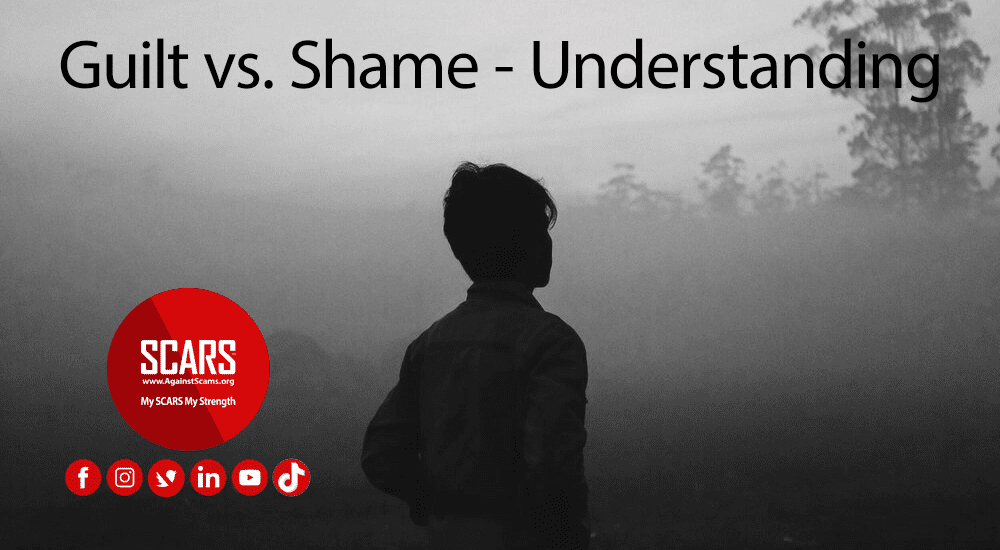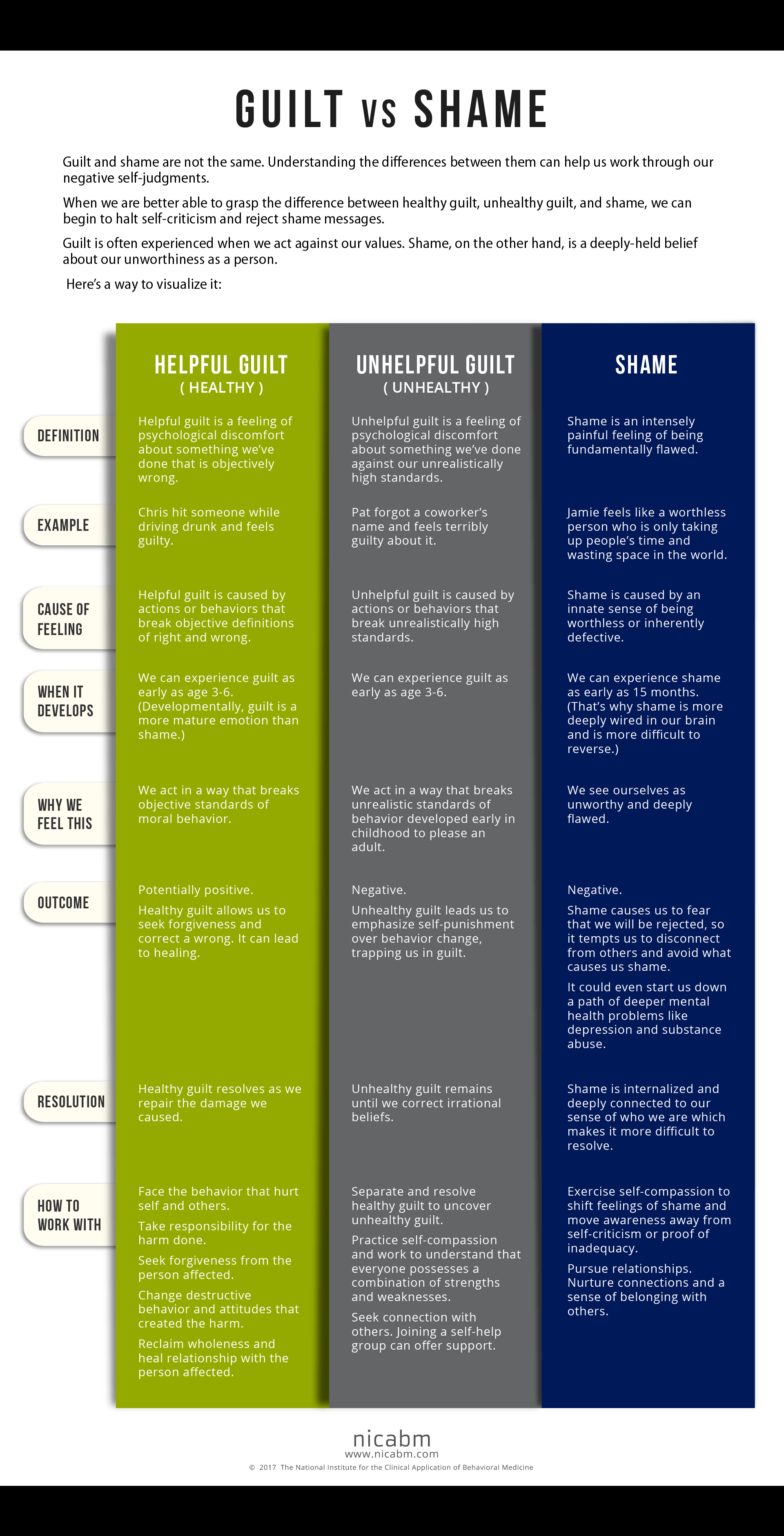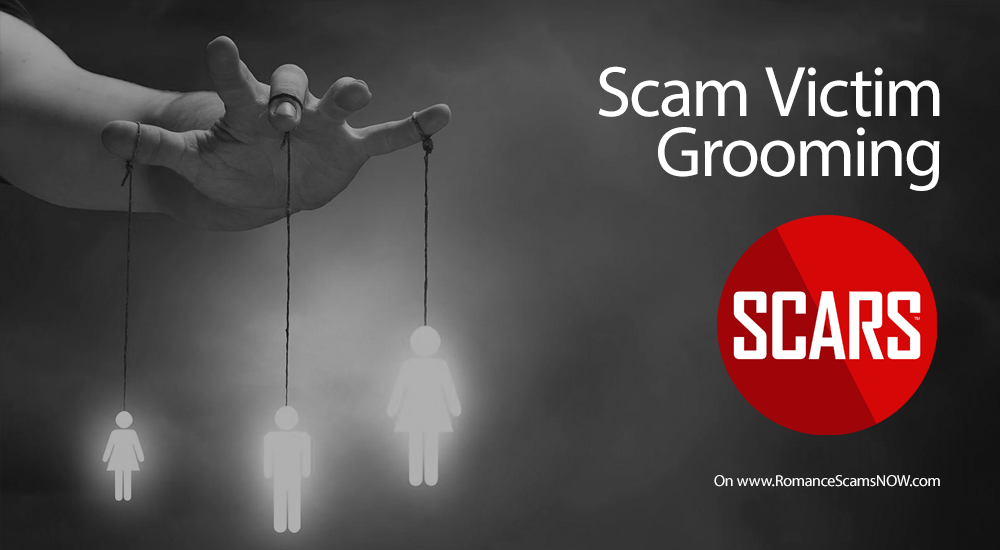Understanding The Mechanisms of Guilt & Shame
Shame & Guilt Are Among The Most Painful Human Emotions
No one wants unbidden reminders that we did something to disappoint ourselves or others. But while guilt and shame feel terrible, they are not always “bad emotions.”
Guilt and shame can lead to depression, anxiety, and paranoia, but they also nudge us to behave better or to avoid situations in the future that caused us pain. When we act in a way we are not proud of, the brain broadcasts a signal that prompts us to alter our conduct.
Studies suggest that guilt and shame serve an important, adaptive function important for human survival.
Scam Victims Shame & Guilt
Remember, while this article attempts to explain guilt and shame to help you understand what you are feeling, you have nothing to be ashamed of, nor feel guilty about. You are the victim of a crime and were expertly manipulated.
Guilt
Guilt is aversive and—like shame, embarrassment, or pride—has been described as a self-conscious emotion, involving reflection on oneself. People may feel guilt for a variety of reasons, including acts they have committed (or think that they committed), a failure to do something they should have done, or thoughts that they think are morally wrong.
What Is Guilt?
When one causes harm to another, guilt is a natural emotional response. Guilt is self-focused but also highly socially relevant: It’s thought to serve important interpersonal functions by, for example, encouraging the repair of valuable relationships and discouraging acts that could damage them. But in excess, guilt may needlessly burden those who experience it.
Can Guilt Be Helpful?
Given how uncomfortable guilt can feel, it can provide a strong motivation to apologize, correct or make up for a wrong, and behave responsibly. Since doing so helps preserve social bonds and avoid harm to others, guilt, despite being a “negative” feeling, can sometimes be good. Research suggests that guilt-proneness may be related to empathy as well as trustworthiness.
Does Everyone Feel Guilt?
Not necessarily. The degree to which people feel guilt varies and those with certain personalities may experience relatively little (if any) guilt. A lack of guilt and remorse is one characteristic that experts have used to diagnose psychopathy.
What Is The Difference Between Guilt And Shame?
Shame and guilt are two closely related concepts. While each has been defined in different ways, guilt is typically linked to some specific harm, real or perceived, and shame involves negative feelings about one’s self more generally.
Are Some People Prone To Guilt And Shame?
Excessive guilt can be a feature of certain forms of mental illness, including depression and post-traumatic stress disorder. The tendency to feel shame has also been associated with depression, anxiety, and other psychological symptoms. Factors such as social stigma related to one’s characteristics may also make shame more likely
How to Cope With Guilt
Feeling guilt after a misdeed is normal and can often be remedied by apologizing and taking steps to make up for whatever pain or offense has been caused. But many feel guilt that is out of proportion to the harm they have caused or even disconnected from any real harm. In such cases, it may be necessary to reflect on the reasons for one’s feelings of guilt—perhaps in conversation with a counselor or therapist, especially when an underlying mental health condition may be involved.
Why Do I Feel Guilty About Everything?
Though pervasive feelings of guilt are not necessarily a sign of an underlying mental health condition, they can be. Widely used criteria include regular feelings of “excessive or inappropriate guilt” among the symptoms of major depressive disorder and bipolar disorder, and guilt plays a role in other disorders as well. The guilt may be related to repeatedly thinking about minor failures or stemming from things that are not actually within a person’s control.
Can you feel guilty for something that isn’t your fault?
Yes. Someone may feel survivor guilt despite bearing no responsibility for circumstances that have harmed others. People with certain kinds of mental illness may feel unwarranted guilt as part of their condition—such as guilt for “bad” intrusive thoughts, in the case of obsessive-compulsive disorder (OCD).
What are some ways to feel less guilty?
When guilt stems from something you did to someone, apologizing and seeking to avoid repeating your behavior is one clear way to respond and could help you achieve self-forgiveness. But sometimes guilt is unrelated to actual misbehavior or becomes counterproductive. Remedies for unnecessary guilt may include reflecting on factors that were beyond your control, acknowledging what you know now that you didn’t in the past, and considering whether your standards for yourself are too unforgiving.
Can Therapy Help With Guilt?
Yes. Given that guilt can be excessive or undeserved and that guilt can be an aspect of some mental health conditions, therapy can be helpful for addressing intense guilt. There are evidence-supported treatments for depression, post-traumatic stress disorder, and other conditions that involve pronounced feelings of guilt (though therapy may be helpful even in the absence of a diagnosed condition).
Shame
The experience of shame—a feeling of being unworthy, bad, or wrong—can be extremely uncomfortable. Shame has the potential to change the way we see ourselves and may lead to long-lasting social, professional, and sexual difficulties.
The word “shame” means different things to different people, though shame is different from guilt and embarrassment. Guilt is usually understood to involve negative feelings about an act one has committed, while embarrassment deals with a societal reaction. Shame, on the other hand, involves negative feelings about oneself, and although a person can be shamed by peers or society in general, shame can also be experienced secretly.
Unresolved shame can lead to feelings of depression, anxiety, and low self-esteem. Shame may also be a symptom of some mental health diagnoses, such as body dysmorphia, or the product of a traumatic experience, such as rape or sexual assault.
Living with shame, regardless of the shame’s source, can be a lonely and demoralizing experience. Therapy can help by addressing the underlying cause. When shame is due to a past misdeed, the right therapist can support a person to make amends or move on.
Shame: A Universal Emotion
Most research suggests that people from all cultures, environments and geographic regions experience shame. Research on facial expressions even suggests that expressions associated with shame and guilt are widely recognizable, even among people viewing images of those from vastly different cultures.
Cultural factors play a major role in how a person experiences shame and which experiences are likely to induce shame. For instance, in collectivist cultures, a person may experience shame due to someone else’s actions. A 1998 study found that, compared to American college students, Chinese college students experienced higher levels of shame when a sibling was caught cheating.
In many cultures, public shaming is used as a way to control or punish behavior. Fear of bringing shame to oneself or one’s family may play a role in people’s decision to obey the law, treat others fairly, or work hard. More recently, public shaming has moved online. Businesses may face an onslaught of negative comments in response to political or religious commentary. In 2015, a dentist received thousands of negative reviews, threats, and hostile comments on his social media after he killed a beloved lion.
Research consistently shows that shame can have catastrophic effects on mental health and behavior. Feelings of shame have been linked to suicidal actions and gestures. Shame may also deter people from seeking treatment for mental health issues or make it difficult to apologize for wrongdoing.
Where Does Shame Come From?
The experience of shame can be deeply unpleasant. People experiencing shame are struck by the overwhelming belief that they—as opposed to their actions or feelings—are bad. In some people, this may inspire a change in behavior. In others, shame can be paralyzing.
Shame has many sources. Sometimes a person is plagued by feelings of shame without a clear cause. This is more common among people with mental health diagnoses. Some studies have linked conditions such as depression or social anxiety to shame. Because mental health conditions remain stigmatized, a person experiencing shame due to a mental health condition may continually become more ashamed of themselves and their condition, exacerbating symptoms and making it difficult to seek help.
Some Other Common Causes Of Shame Include:
- Cultural norms. Many cultures stigmatize certain sexual interactions, such as homosexual sex or sex between unmarried people. People who transgress these cultural norms may feel shame. In collectivist cultures, some people experience shame when loved ones violate cultural or moral norms.
- Self-esteem issues. People with low self-esteem may struggle with feelings of shame even when they can point to no specific source of the shame.
- Religious conditioning. Many religions urge people to feel shame for violating religious prescriptions. Some use shame to “inspire” people to do better.
- Trauma and abuse. People who experience trauma and abuse often experience shame. Childhood sexual abuse is a common cause of shame in adulthood, especially among adults who feel embarrassed about their abuse experiences. Some abusive families shame members who set clear boundaries or who call the abuse what it is. Gaslighting—attempting to convince someone that their perceptions are wrong—can lead to shame.
Research on frontotemporal dementia, which causes people to engage in socially inappropriate behavior, offers some insight into the brain origins of shame. The right pregenual anterior cingulate is damaged in this form of dementia. Other studies also suggest this brain region plays a role in embarrassment. So it’s possible that this brain region somehow plays a role in feelings of shame.
Experiencing Shame
Though the terms “shame” and “guilt” are sometimes used interchangeably, most research on these emotions has found that they are distinct experiences. One study, for example, found that experiences of guilt and shame differed across numerous dimensions, including self-consciousness, self-control, inferiority, the expectation of punishment, and a person’s sense of alienation from others.
Although popular wisdom suggests that shame is more likely to happen with public transgressions, a 1996 study undermines this claim. Researchers asked 182 college students to describe experiences of guilt, shame, and embarrassment. They found that shame was no more common in public contexts than guilt. Moreover, students often reported feeling shame and guilt when they were alone.
Shame may last a brief time, or it may be a core experience of the self. For some people, feelings of shame may begin in childhood and continue well into adulthood. These people may be conscious of such feelings. Others may be unaware of their shame, and hide it under behaviors such as addiction, anger, or narcissism. Some people respond to shame by engaging in self-harm.
Living With Shame
Living with shame can be painful and difficult, as it can prevent people from meeting core needs, such as the maintenance of self-esteem, hope for the future, friendship and intimacy, productivity, and love.
Studies of shame consistently find that this emotion can play a role in suicide. People who feel guilt may have the ability to take action to overcome their guilt. Embarrassment, likewise, is often a transient state. But shame fundamentally affects a person’s sense of self, potentially triggering or worsening suicidal thoughts.
Research published in 2017 found that college students see shame as a risk factor for suicide. More than 1,000 college students read a vignette in which a person felt either shame or guilt for a traumatic experience. Students who read the shame vignette were more likely to link the depicted trauma to thoughts of suicide.
What Is Shaming?
Shaming is an attempt to make another person feel ashamed. Shaming targets who a person is, not what they do. Telling a child they are bad is an act of shaming. Shaming also sometimes appeals to religious or social norms. Publicly airing a person’s misdeeds is usually an attempt to shame them.
SCARS Resources:
- Getting Started Right: ScamVictimsSupport.org
- For New Victims of Relationship Scams newvictim.AgainstScams.org
- Subscribe to SCARS Newsletter newsletter.againstscams.org
- Sign up for SCARS professional support & recovery groups, visit support.AgainstScams.org
- Join our Scam Survivors United Chat & Discussion Group facebook.com/groups/scam.survivors.united
- Find competent trauma counselors or therapists, visit counseling.AgainstScams.org
- Become a SCARS Member and get free counseling benefits, visit membership.AgainstScams.org
- Report each and every crime, learn how to at reporting.AgainstScams.org
- Learn more about Scams & Scammers at RomanceScamsNOW.com and ScamsNOW.com
- Scammer photos ScammerPhotos.com
- SCARS Videos youtube.AgainstScams.org
- Self-Help Books for Scam Victims are at shop.AgainstScams.org
- Donate to SCARS and help us help others at donate.AgainstScams.org
- Worldwide Crisis Hotlines: https://blog.opencounseling.com/suicide-hotlines/
Other Cyber Resources
- Block Scam Domains: Quad9.net
- Global Cyber Alliance ACT Cybersecurity Tool Website: Actionable Cybersecurity Tools (ACT) (globalcyberalliance.org) https://act.globalcyberalliance.org/index.php/Actionable_Cybersecurity_Tools_(ACT)_-_Simplified_Cybersecurity_Protection
-/ 30 /-
What do you think about this?
Please share your thoughts in a comment below!
Do You Need Support?
Get It Now!
SCARS provides the leading Support & Recovery program for relationship scam victims – completely FREE!
Our managed peer support groups allow victims to talk to other survivors and recover in the most experienced environment possible, for as long as they need. Recovery takes as long as it takes – we put no limits on our support!
SCARS is the most trusted support & education provider in the world. Our team is certified in trauma-informed care, grief counseling, and so much more!
To apply to join our groups visit support.AgainstScams.org
We also offer separate support groups for family & friends too.
Become a
SCARS STAR™ Member
SCARS offers memberships in our STAR program, which includes many benefits for a very low annual membership fee!
SCARS STAR Membership benefits include:
- FREE Counseling or Therapy Benefit from our partner BetterHelp.com
- Exclusive members-only content & publications
- Discounts on SCARS Self-Help Books Save
- And more!
To learn more about the SCARS STAR Membership visit membership.AgainstScams.org
To become a SCARS STAR Member right now visit join.AgainstScams.org
To Learn More Also Look At Our Article Catalogs
Scam & Crime Types
More SCARS
- ScamsNOW Magazine – ScamsNOW.com
- ContraEstafas.org
- ScammerPhotos.com
- AnyScam.com – reporting
- AgainstScams.org – SCARS Corporate Website
- SCARS YouTube Video Channel











![An Example of How Scammers Use Emergency Scams - 2014 [UPDATED 2024] - on SCARS RomanceScamsNOW.com](https://romancescamsnow.com/wp-content/uploads/2014/06/emergency-scams.png)


My thoughts as a victim, 6 months out.
You had me at Welcome to Hell!
This made me laugh at the thought of tv set to CSPAN!
First circle: yes, exactly total shock and confusion. What the hell happened to me?!
Second circle: I can see how this happens. After feeling so helpless and out of control, it feels good to feel in control and ‘on the other side’ even though that’s not really true for a long time.
Third circle: I understand this. What if it was real? Did I make a mistake? Is this the one in a trillion that’s actually not a scammer but the love of my life? Searching for confirmation.
Fourth circle, yes I want my money back but I accepted somehow right from the revelation that it was all a scam that I would likely never get it back. So I just told myself okay it is what it is. I will survive without it. If I get it back great. I say this now, not sure if my feelings will change.
Fifth circle: Of course I have felt rage at times but for me it comes out in tears. I haven’t felt real rage yet. I say yet because I don’t know if it’s coming. I will resist it because it doesn’t serve me at all.
Sixth circle: I avoided this after tasting it when first coming out of my scam and ending up in the arms of the ‘hate’ Facebook groups before finding SCARS. It’s nothing but misery and definitely the wrong road to take. In my opinion this would keep me in a perpetual cycle of useless negative energy that isn’t going to help me move forward. A massive backwards move.
Seventh circle: I have been here. I don’t want to ever feel that again. Total desperation and hopelessness. I’m grateful for my life, the good and bad.
Eight circle: I’m not sure what to think about this one. My family DID try to intervene about a month into the scam. I was already in. It was too late. I denied what they were trying to tell me. I believed the scammer more. What does this say about me? I ask myself this…am I just a bad person? Or was it that the manipulation and trust relationship was already so strong I could not resist? That’s how it felt. During the relationship I would have left for Canada without even blinking an eye. I was dangerous to myself.
Ninth circle: I’m personally accept what happened. I know I’m vulnerable and I’m not forgetting that.
Escape: I’m clawing myself out and away, with the help of this group/SCARS.
I think the article was very thought provoking and interesting!